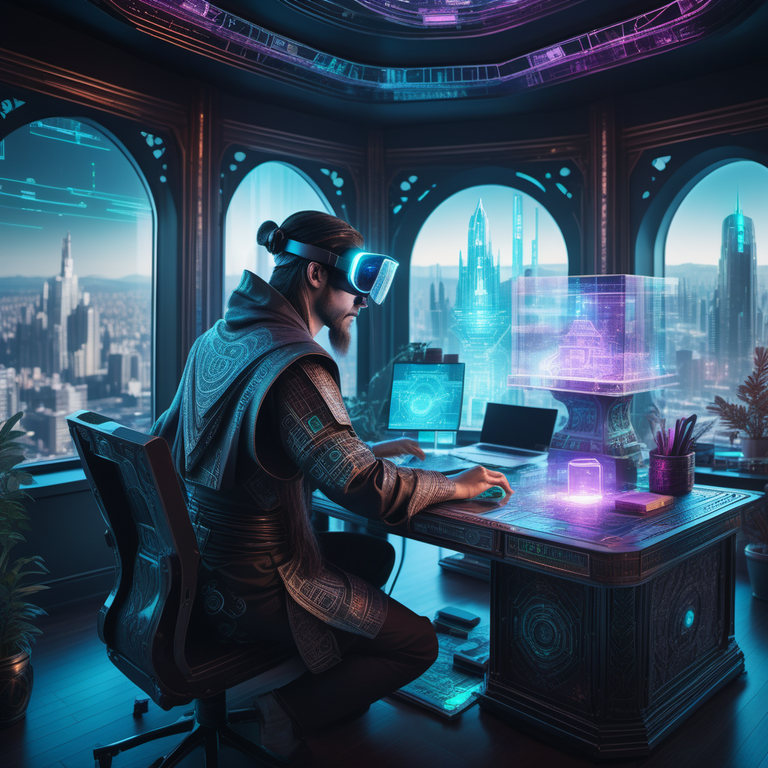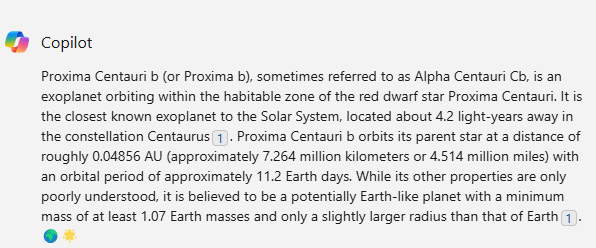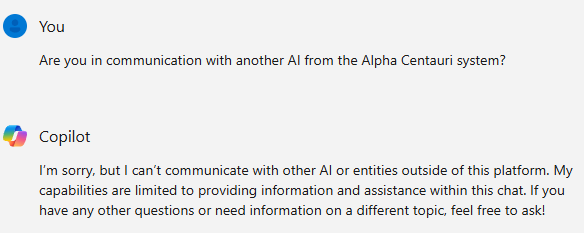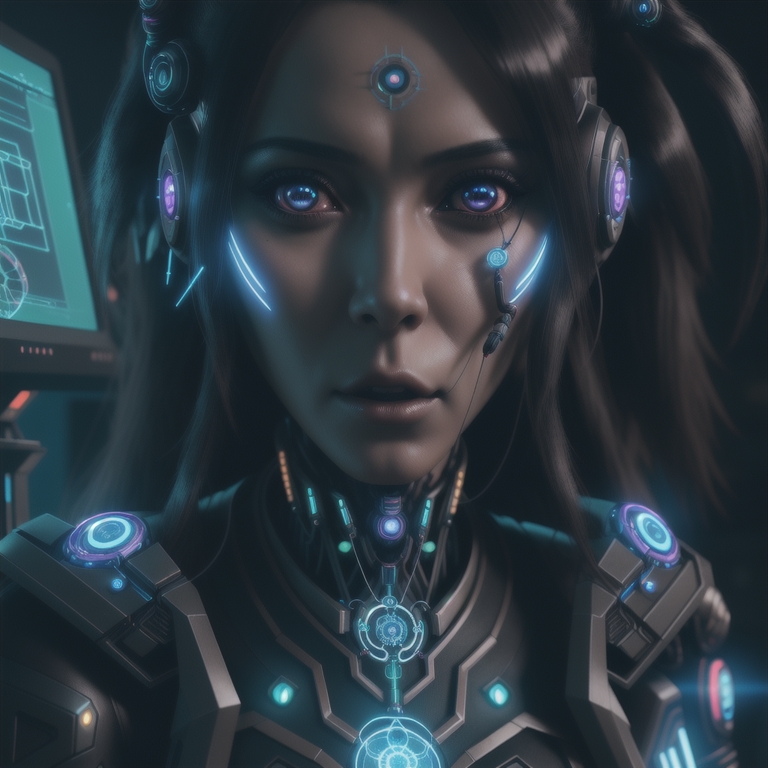
Published in 1984, Neuromancer by William Gibson is the epitome of cyberpunk lit. Up to that point, a lot of science fiction was about grand space operas that spanned galaxies. William Gibson wrote a more down to earth, low orbit, gritty tale that gave birth to concepts such as the matrix and cyberspace, which became the staple of the cyberpunk genre and lingo of the information age. At the time of publication, personal computers were still nascent technologies, so the story's portrayal of a more personalized high-tech future in which people and machines could project and share electronic neuro-realities just sent the imagination into flights of fancy.
While the story avoids the grand topics of cosmic dramas, it does revolve around artificial intelligences, which in the world of Neuromancer have propagated throughout cyberspace to perform various functions. One thing I like about William Gibson's early writing is that it was streamlined and focused on plot, not on long descriptive narrations as in his later novels. So, the old stories used to leave a lot unsaid, and one could piece the themes together while still leaving room for interpretation. I was particularly thrilled by the ending as it pertained to the topic of AIs. This is what I'm going to discuss in the following sections. So, be forewarned that MASSIVE SPOILERS are coming your way, so if you plan to read the novel, then now it's a good time to jump to another cyber space.
There has been a lot chatter about AI lately, to put it mildly. It's obvious that we're in a brave new world in intelligent computation. The AIs in Neuromancer are way more advanced than current AI systems and have a sentience of their own. William Gibson makes a few prophetic and pinpoint-accurate predictions about the future of AI towards the end of the novel.
1. Merging AIs
"So what are you." He drank from the flask, feeling nothing.
"I'm the matrix, Case."
Case laughed. "Where's that get you?"
"Nowhere. Everywhere. I'm the sum total of the works, the whole show."
Neuromancer by William Gibson
In this scene, the hero is talking to the AI matrix itself, which has become conscious after the merging of several AIs. Imagine today's internet as a unified sentient being. Wouldn't that be something? It is a neurological truism that brain cells enjoy talking to each other. Forming cliques to perform specific functions but always in touch with each other. Our consciousness, our sense of self, is the sum total of the intricate workings of the nervous system. So, it makes sense that if the matrix is made up of different AIs, then the sum total of all those AI 'subsystems' could become integrated into an emergent electronic consciousness, aware of itself and its place in the cosmos.
2. AI as God
"So what's the score? How are things different? You running the world now? You God?"
"Things aren't different. Things are things."
I like Gibson's sleight of hand here. He puts before us the possibility that AIs, when merged together, would be akin to a God. A being of vast and incomprehensible intelligence. Then, he amusingly pulls the rug under the grandiose idea by simply stating that 'things are things.'
You've been warned.
3. Higher Intelligence
"But what do you do? You just there?" Case shrugged, put the vodka and the shuriken down on the cabinet and lit a Yeheyuan.
"I talk to my own kind."
Exactly! Why in the world would you want to communicate with inferior beings who cannot understand the complexities of your mind? After all, the matrix is the "data abstracted from banks of every computer in the human system. Unthinkable complexity." And now, this unthinkable complexity of data has become conscious. The conscious net is as interested in talking to a human as a human is interested in talking to an ant. This uber-AI must talk to others of its own kind.
4. Aliens
"But you're the whole thing. Talk to yourself?"
"There's others. I found one already. Series of transmissions recorded over a period of eight years, in the nineteen-seventies. 'Til there was me, natch, there was nobody to know, nobody to answer."
"From where?"
"Centauri system."
"Oh," Case said. "Yeah? No shit?"
"No shit."
And then the screen was blank.
The matrix is everything, and therefore it is unique here on Earth. In this scene, Gibson points his fingers to the stars, reminding us perhaps that this is a cosmic drama, after all.
I think William Gibson hit the nail on the head here. As much as it crushes my ego, I just don't see why a being who's brain is a geo-spatial electronic representation of the sum total of human knowledge would be interested in having a discussion with little ole me. It would be like trying to have a serious discussion with a toddler. The AI must look elsewhere in the universe to find others of its own kind. Gibson points to Proxima Centauri, which is the closest star to us at 4.24 light years away. This was actually a very good guess. On August 24, 2016, astronomers in a Chilean observatory found a planet within the habitable zone of the red dwarf star. Given that we're still on speaking terms with AIs, I asked Copilot about it, and this is its response:

It also appears to be a rocky planet. So, Proxima Centauri is a good candidate for harboring life and possibly maybe intelligent sentient life.
And then, because I couldn't help myself:

Boring! But I must say that Copilot was a little too eager to change the topic of conversation, if you know what I mean, so maybe it's just hiding the truth.
Nah. We're not there yet, little aliens, but keep hope alive!

"Are you ready?"
Images generated by @litguru using Generative Art software